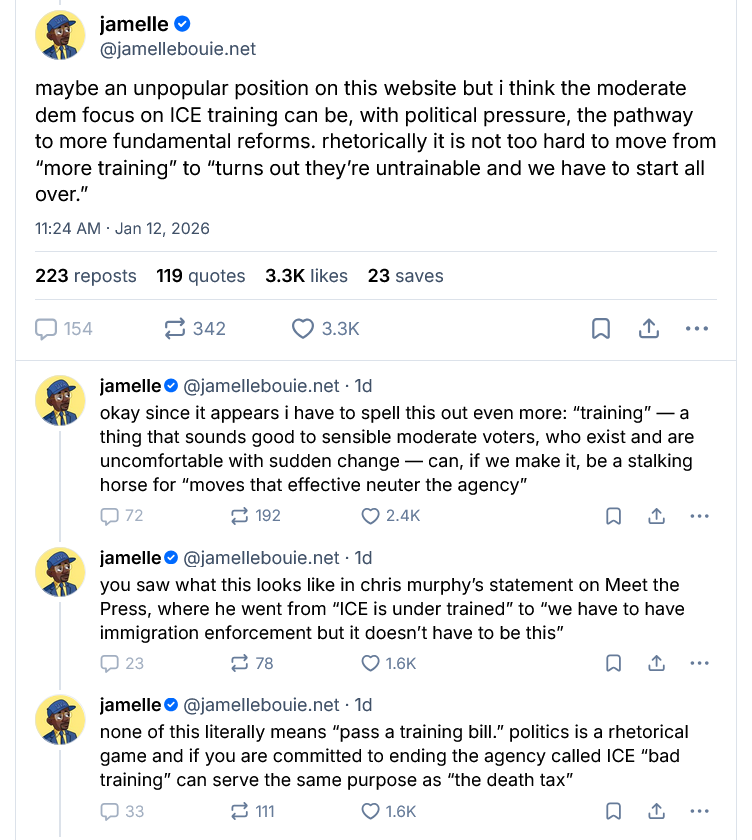THREAD. As we hit an unprecedented 100,000 drug overdose deaths, I answer the following question in this thread on the "War on Drugs": are punishment bureaucrats incompetent at achieving their goals, or are they pursuing goals that are different from what they tell us publicly?
After over 40 years, the drug war has:
-Cost more than $1 trillion
-Caused over 50 million people to be caged (almost all of them poor), including over 20 million for marijuana
-Caused an estimated hundreds of millions of police stops that meet legal definition of kidnapping.
-Cost more than $1 trillion
-Caused over 50 million people to be caged (almost all of them poor), including over 20 million for marijuana
-Caused an estimated hundreds of millions of police stops that meet legal definition of kidnapping.
The drug war has:
-Caused tens of millions of years in prison
-Separated tens of millions of children from their parents
-Cost tens of millions of people their education, houses, and ability to make a living
-Caused millions of square acres of pristine land to be spray-poisoned
-Caused tens of millions of years in prison
-Separated tens of millions of children from their parents
-Cost tens of millions of people their education, houses, and ability to make a living
-Caused millions of square acres of pristine land to be spray-poisoned
The drug war has:
-Cost tens of millions of people their right to vote
- Killed hundreds of thousands in the militarized drug wars and U.S.-led murder in Latin America
-Led to militarization and widespread surveillance by local police and federal agents of every U.S. city.
-Cost tens of millions of people their right to vote
- Killed hundreds of thousands in the militarized drug wars and U.S.-led murder in Latin America
-Led to militarization and widespread surveillance by local police and federal agents of every U.S. city.
The drug war has:
-Deprived hundreds of millions of people low cost, sustainable treatments for a wide range of illnesses
-Cost millions of people billions of dollars in wealth from police civil forfeiture seizures of their property.
-Led to mass spread of infectious disease
-Deprived hundreds of millions of people low cost, sustainable treatments for a wide range of illnesses
-Cost millions of people billions of dollars in wealth from police civil forfeiture seizures of their property.
-Led to mass spread of infectious disease
The vast majority of these horrific consequences were inflicted on people for personal use of certain substances, an exercise of bodily autonomy that other countries have protected and that this country protects (and allows profit) for harmful substances like alcohol and tobacco.
All of this was done in ways that dramatically increased the racial disparities in every facet of life, and almost all of it targeted the poorest people in our society. Students at boarding schools and ivy league universities use drugs without fear. Laws weren't meant for them.
For all of these costs, drug use either did not go down or increased during the "War on Drugs," and teenagers are using dangerous drugs at twice the rate that they did in the 1980s. Overdose deaths are at all time high. nytimes.com/2021/11/17/hea…
Government bureaucrats know all of these statistics, and yet the "War on Drugs" continues in every city and town, every single day. Why would sophisticated people pursue strategies that are so counterproductive and destructive to their stated goals?
The only reasonable conclusion is that the “War on Drugs” is not about flourishing communities and ending drug use. It's about profit, racism, surveillance, and social control. Seen this way, the system is actually quite efficient and effective.
I’ll leave you with a quote from one of Nixon’s top advisors explaining their decision to launch the “War on Drugs.” 

• • •
Missing some Tweet in this thread? You can try to
force a refresh







